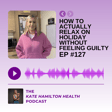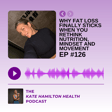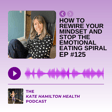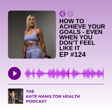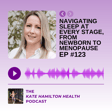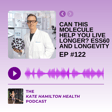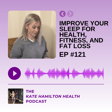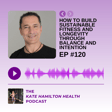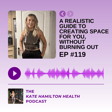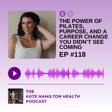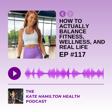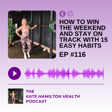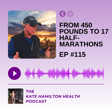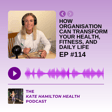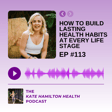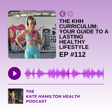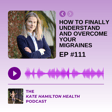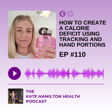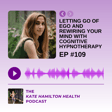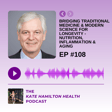
#106: Emma McKee: Overcoming an eating disorder and embracing fitness
Have you ever felt trapped in a cycle of negative self-talk, disordered eating, or struggling to find balance in your fitness journey?
In this episode of The Kate Hamilton Health Podcast, I sit down with Emma McKee, a leading personal trainer and 2024’s Belfast’s Best PT winner, to discuss her powerful journey from battling bulimia for 11 years to becoming an advocate for mental health, self-care, and strength training.
Emma opens up about the mental and emotional toll of an eating disorder, how she found the courage to seek help, and the pivotal role that fitness and mindset shifts played in her recovery. We also dive into the evolution of the fitness industry, why more women are stepping into strength training, and how she transitioned from in-person coaching to building a thriving online business - all while navigating motherhood.
If you’re ready to learn how to break free from toxic cycles, build a stronger, healthier mindset, and embrace fitness as a tool for empowerment rather than punishment, this episode is for you.
Episode Highlights:
[00:00] – Welcome to The Kate Hamilton Health Podcast
[01:24] – Meet Emma McKee: Belfast’s Best PT & Advocate for Mental Health
[01:45] – Emma’s Journey into Personal Training & Overcoming Struggles
[02:29] – How the Fitness Industry Has Evolved for Women
[03:38] – The Importance of Female Personal Trainers in Today’s Industry
[06:30] – Transitioning from In-Person Coaching to Online Success
[08:51] – Balancing Motherhood, Business & Mental Well-being
[11:58] – Emma’s 11-Year Struggle with Bulimia & The Road to Recovery
[18:27] – The Turning Point: Seeking Help & Overcoming Mental Barriers
[23:15] – How Motherhood Shifted Her Mindset on Health & Self-Care
[27:53] – The Role of Personal Development in Healing & Growth
[29:03] – Understanding Emotions, Triggers & Mental Health Challenges
[30:20] – The Power of Breathwork & Tapping for Anxiety & Healing
[31:00] – Exploring Alternative Healing Methods & Self-Discovery
[34:14] – Taking Personal Responsibility for Growth & Change
[38:21] – Managing Panic Attacks, Stress & Anxiety in Daily Life
[40:58] – Why Personal Routines & Boundaries Are Non-Negotiable
[49:49] – Finding Joy in Exercise & Shifting Your Relationship with Fitness
[55:22] – Redefining Health: What It Really Means to Live Well
Links & Resources:
- Connect with Emma on Instagram here
If you enjoyed this episode, please subscribe, leave a review, and share it with friends who might benefit. For more health and fitness tips, follow me on Instagram and TikTok @katehamiltonhealth.
Music b LiQWYD Free download: hypeddit.com/link/xxtopb [http://hypeddit.com/link/xxtopb] Promoted by FreeMusicPromo [https://www.youtube.com/channel/UCbycji-eySnM3WD8mbxPUSQ] / @freemusicpromo
